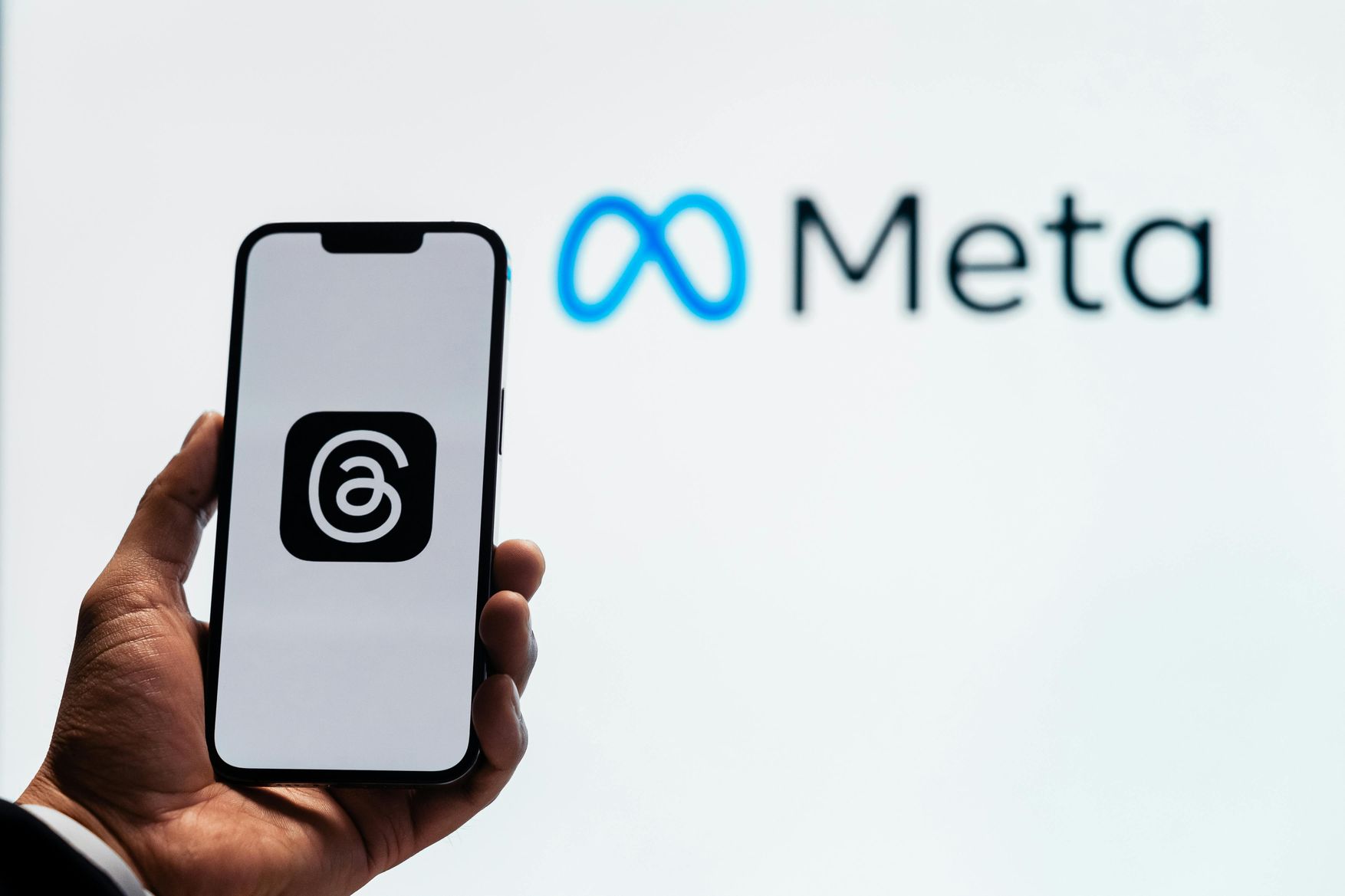Mastering the Meta Software Engineer Interview: Questions, Process, and Expert Tips for Preparation

As one of the world's leading technology companies, Meta is known for its innovative products and services. And for many engineers, Meta is a dream destination.
For anyone aiming to secure a software engineering role at Meta, thorough preparation is essential. In this article, we’ll explore Meta’s software engineer interview process in detail, discuss common questions, share preparation strategies, and highlight common mistakes to avoid. We’ll also address some frequently asked questions to help you navigate the interview process.
Table of Contents
- The Meta Interview Process and Timeline
- Common Meta Software Engineer Interview Questions
- Preparation Strategies for Meta’s Interview
- Mistakes to Avoid During Meta Interviews
- What Happens After the Meta Interview?
- FAQ
- Conclusion
The Meta Interview Process and Timeline
The interview process at Meta takes approximately four to eight weeks, and you’ll be having four to six different conversations, each lasting about 45 minutes. Coding, design, and behavioural topics will be covered in the interviews. Depending on where you and the recruiter are located, the interview will be either on site or over video call.
The remote interviews will take place in tools like Excalidraw and CoderPad. Meta recommends having a reliable internet connection, laptop, webcam, speaker, and mic. They recommend using a headset or headphones with a mic for better audio quality.
With these interviews, Meta aims to evaluate candidates across multiple dimensions—technical proficiency, problem-solving ability, communication skills, and cultural alignment. The interview consists of three key phases:
- The recruiter screen
- The technical phone screen
- The onsite interview
Recruiter Screen
The recruiter screen is the first phase of the process, typically involving a phone call with a HR recruiter. During this stage, the recruiter has assessed your resume, and you will be asked questions about your previous work experience, your motivation for applying, and your interest in Meta. The recruiter will also discuss your technical background and what you can expect from the upcoming interview stages.
It is an important first step in Meta’s hiring process. While the focus isn’t on technical questions, you’ll be evaluated on your professional experience, your reasons for wanting to work at Meta, and how well you fit the company’s culture. The recruiter may ask questions such as “Why are you interested in Meta?“ “Tell me about yourself”, “What do you know about Meta’s products and mission?“ and “What does your day-to-day as a developer look like currently?”
Technical Phone Screen
The next step is the technical phone screen, which focusses primarily on coding challenges. This round you’ll go through one or two technical screens, which usually last about 45-60 minutes and involve solving algorithmic problems while sharing your thought process with the interviewer.
The questions are typically medium to hard-level coding problems similar to those found on platforms like Leetcode and HackerRank. Meta recommends studying for this by writing code every day, practicing many different problems, and thinking about different algorithms and algorithmic techniques such as iteration, sorting, divide-and-conquer, and recursion. Meta doesn’t ask dynamic programming questions.
These interviews typically focus on data structures and algorithms, with questions ranging from arrays, strings, and hashtables to specialised trees like binary search trees. Examples of common questions include:
During the technical phone screen, you’ll be expected to write code in real time in a simple online code editor like CoderPad, so it’s recommended to get familiar with it. During the screen, you’ll be programming and explaining your approach as you go. Keeping your code simple and clear communication is key here.
Onsite or “Full Loop” Interview
If you perform well on the technical phone screen, you’ll be invited to an onsite or “Full Loop” interview. This stage includes multiple rounds of interviews that test coding skills, system design knowledge, and behavioural competencies. You’ll typically spend a full day at Meta and do four to five interviews. The onsite interview generally lasts 4-6 hours and includes:
- Coding interviews: You’ll solve general coding questions, which will be harder than in the technical screen.
- Design interviews: Typically, 1 or 2 interviews where you’ll be asked system or product design questions, depending on your background.
- Behavioural interviews: These focus on your ability to work within a team, handle challenges, and align with Meta’s cultural values.
Meta’s interview process is designed to assess not just technical skill but also cultural fit. We do note: sometimes onsite steps of the process are done virtually, but your recruiter will inform you if this is the case.
Common Meta Software Engineer Interview Questions
Coding Questions
Meta’s coding interviews are centered on algorithms and data structures. You can expect questions on arrays, linked lists, and trees. Here are some examples of common coding questions:
- Given an array nums of n integers where n > 1, return an array output such that output[i] is equal to the product of all the elements of nums except nums[i].
- Implement an iterator over a binary search tree (BST). Your iterator will be initialised with the root node of a BST.
- Serialise and deserialize a binary tree.
- Given two arrays, write a function to compute their intersection.
These problems can be practiced on platforms like Leetcode, where you’ll also be able to use Leetcode Wizard as a co-pilot.
System Design Questions
The system design interviews at Meta are an important part of the interview process because Meta engineers need to be able to design highly scalable systems since WhatsApp, Facebook, and Instagram all have more than 1 billion+ active users per month.
System design can either refer to a system design or a product design interview. The difference:
- In a system design interview, you’ll be asked to deal with availability, scalability, partition tolerance, reliability, storage, databases, and core systems.
- In a product design interview, you’ll be asked about APIs, data modelling, how the server and client interact, and how a user may interact with it.
Questions will be open-ended and more discussion like. Some common system design questions include:
System Design
- How would you design Instagram / Instagram Stories?
- How would you design a messaging app like WhatsApp or Telegram?
- How would you design Facebook Messenger?
- How would you design Facebook's live update of comments on posts?
- How would you design an online collaborative editor (e.g. Google Docs)?
- How would you design a typehead feature (e.g. Google search autocomplete)?
- How would you design Twitter's trending topics?
Product Design
- Design a service or product API.
- Design a chat service or a feed API.
- Design an email server.
Behavioural Questions
The behavioural interview is a 45-minute session in which the interviewer will want to get to know you. Meta looks for people with problem-solving skills, a growth mindset, and the capability to handle feedback. They’ll want to know how you sustain progress despite hurdles and how well you communicate with others. Interviewers want to see strong levels of autonomy, dealing with ambiguity and ownership.
Meta recommends using the S.T.A.R. method in your prep to organise your thoughts.
Top 10 Getting to Know You Questions:
- Tell me about yourself.
- Why do you want to work at Meta?
- Tell me about a recent favourite project and some of the difficulties you had.
- Tell me about the greatest accomplishment of your career.
- Tell me about a time you struggled to work with one of your colleagues.
- Tell me about a time you had to resolve a conflict in a team.
- Tell me about a time you were given constructive feedback.
- Tell me about a time you had to step up and take responsibility for others.
- Tell me about a time you struggled on one of your software projects.
- Tell me about your worst boss and why they were bad.
Preparation Strategies for Meta’s Interview
Coding Practice
The most effective way to prepare for Meta’s coding interviews is through consistent practice. Platforms like Leetcode, HackerRank, and CodeSignal offer hundreds of problems that simulate the types of questions asked in Meta interviews. Focus on:
- Arrays, strings, and linked lists.
- Trees, graphs, and hashmaps.
Develop a study plan and work through medium to hard-level problems for at least 6-8 weeks before your interview.
System Design Preparation
To prepare for system design interviews, you’ll need a solid understanding of distributed systems and architecture principles.
Mock system design interviews are an excellent way to practice explaining your thought process and answering follow-up questions
Behavioural Interview Prep
For the behavioural interviews, take time to prepare stories that showcase your leadership, problem-solving, and teamwork skills. Use the STAR method to organise your answers, and practice with a friend or mentor. Meta values clear communication, so focus on articulating your experiences in a structured and concise manner.
Mistakes to Avoid During Meta Interviews
Some common pitfalls during Meta interviews include:
- Not asking clarifying questions: If a problem is unclear, don’t hesitate to ask the interviewer for clarification. It’s better to seek clarity upfront than to make incorrect assumptions.
- Ignoring edge cases: When solving coding problems, make sure to consider edge cases, such as empty arrays or extremely large inputs.
- Overcomplicating solutions: While optimising your code is important, avoid overengineering. Sometimes a simpler solution that works is better than a complex one that’s difficult to debug.
Best practices include staying calm, communicating your thought process clearly, and testing your solutions thoroughly. If you spot a bug, talk your interviewer through how you’d solve it.
What Happens After the Meta Interview?
After your interviews, you’ll typically hear back from Meta within one to two weeks. The feedback process is thorough, with interviewers providing detailed input on your performance in each round. If you performed well, you may receive an offer, or you might be placed in a hiring pool.
In the event of rejection, don’t be discouraged. Many candidates reapply after improving their skills, and Meta encourages candidates to try again in six months to a year.
Frequently Asked Questions
What coding languages should I use in a Meta software engineer interview? Meta is flexible, but commonly used languages include Python, Java, C++, and JavaScript. Use the language you’re most comfortable with.
How long does it take to prepare for Meta’s interview? On average, candidates spend 2-3 months preparing for Meta interviews, focussing on coding practice, system design, and behavioural questions.
How many interview rounds are typical for Meta? Typically, Meta interviews consist of 4-6 rounds, including coding, system design, and behavioural interviews.
What types of system design questions does Meta ask? Common system design questions revolve around designing scalable applications, such as content delivery networks, messaging systems, and URL shorteners.
Can I reapply if I fail my Meta interview? Yes, Meta encourages candidates to reapply after six months to a year.
How does Meta test cultural fit during the interview? Meta’s behavioural interviews focus on how you align with the company’s values, such as collaboration, leadership, and adaptability.
What is the average salary for a Meta software engineer? According to Levels.fyi, the average salary for a Meta software engineer ranges from $150,000 to $200,000 annually, depending on level and experience.
Where can I apply for a job at Meta? You can apply for a job at Meta on the Meta Careers website.
Conclusion
Preparing for a Meta software engineer interview requires dedication, practice, and a thorough understanding of both technical and behavioural aspects. By focussing on coding challenges, system design principles, and cultural alignment, you can improve your chances of succeeding in Meta’s competitive interview process. Start early, practice consistently, and use the resources mentioned to boost your confidence and skills. With the right preparation, you’ll be well on your way to mastering the Meta interview.
⭐ Ready for your dream FAANG job? ⭐
Click here to download Leetcode Wizard, the invisible desktop app powered by AI that makes sure you ace every coding interview.


